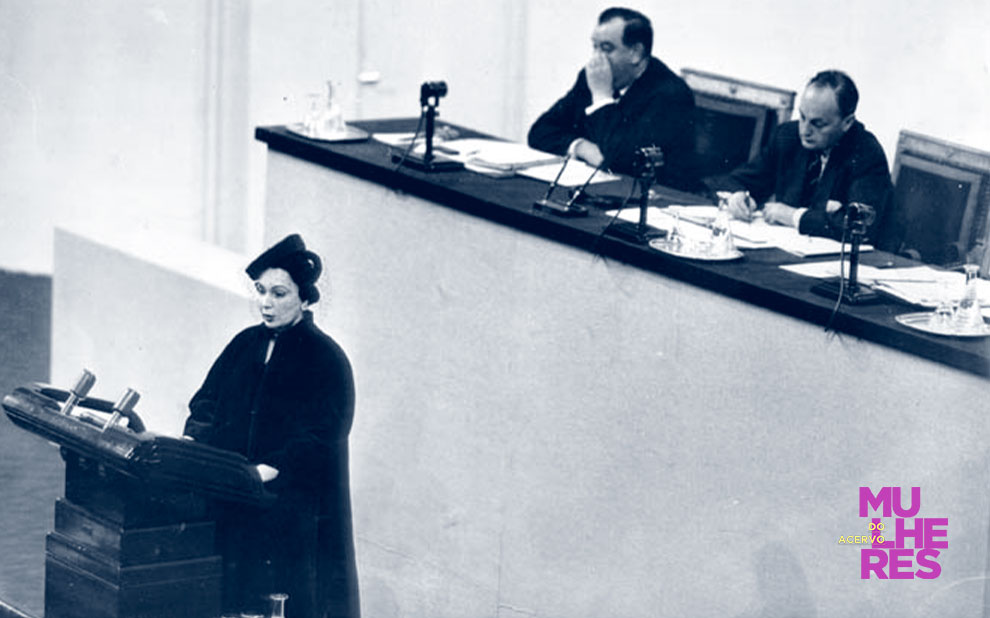Rosalina Lisbôa represented Brazil at UN Assembly and Paraíba at international congress
She advocated women’s involvement in politics, equal rights for men and women and women’s participation in the workforce.

Rosalina Coelho Lisbôa de Larragoiti (1900-1975) was born in Rio de Janeiro and worked as a journalist and director of the newspaper Diários Associados, in charge of its Lisbon, Madrid and Paris editions. Enthusiastic about the revolutionary movements of the 1920s, she wrote articles and gave speeches praising the young officers involved in uprisings and speaking out against the exile that many were forced to undergo.
In an article published by the Rio de Janeiro press on May 2, 1928, she called on Brazilian women to support the fight to grant these officers amnesty. She was a supporter of the 1930 Revolution and that same year she represented Paraíba at the International Women’s Congress.
In 1929, she gave a speech outside the House of Representatives in Rio de Janeiro, arguing against the policies of President Washington Luís. She advocated women’s involvement in politics, equal rights for men and women and women’s participation in the workforce. In 1930, she represented the state of Paraíba at the International Women’s Congress in Rio Grande do Sul. She was the first Brazilian woman to go abroad on an academic mission, to Montevideo in 1932. In 1939, she represented Brazil at the Inter-American Commission of Women in Washington, D.C.
In 1951, she was appointed Brazil’s delegate to the sixth General Assembly of the United Nations in Paris, where she called for an end to corporal punishment applied to black people in South Africa, which led the Inter-American Court of Justice to deem South African laws racist. That same year, she publicly supported a campaign to allow divorce, initiated by Senator Nélson Carneiro. In 1954, she was elected a member of the Advisory Board of the Brazilian International Relations Institute.
As a journalist, she collaborated with Careta magazine and she wrote various books, including Rito Pagão (1922) and A Seara de Caim (1952). She also held several diplomatic positions between 1930 and 1954, becoming friends with President Getúlio Vargas and Minister Oswaldo Aranha, allowing her to work as a political go-between at certain times.
This article is part of a special series called Women’s Archives, which was launched on International Women’s Day.
Leia também
